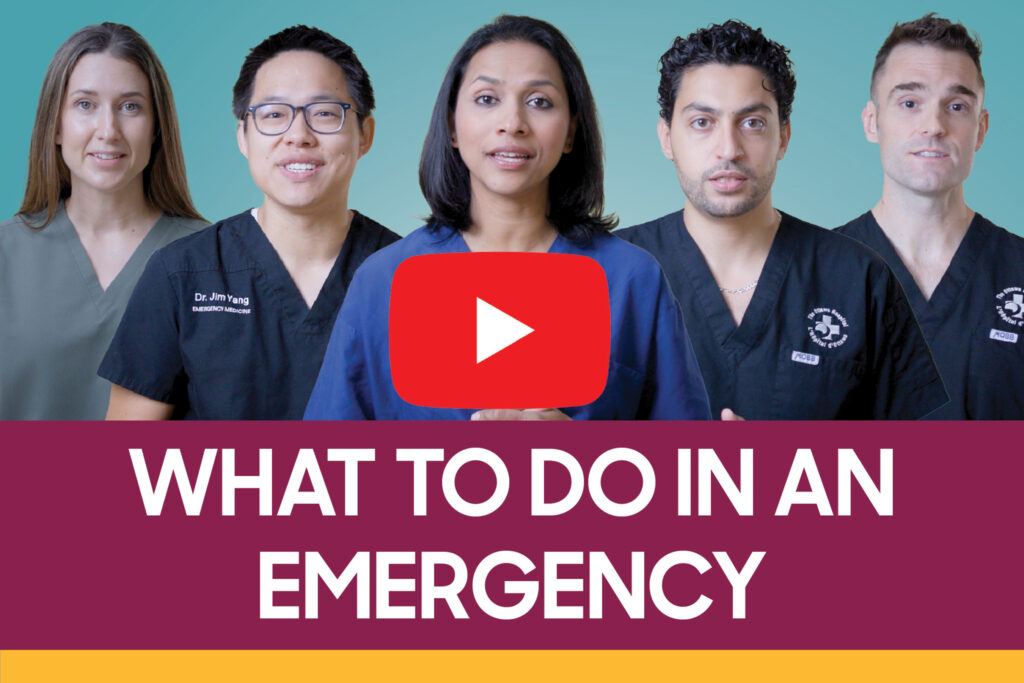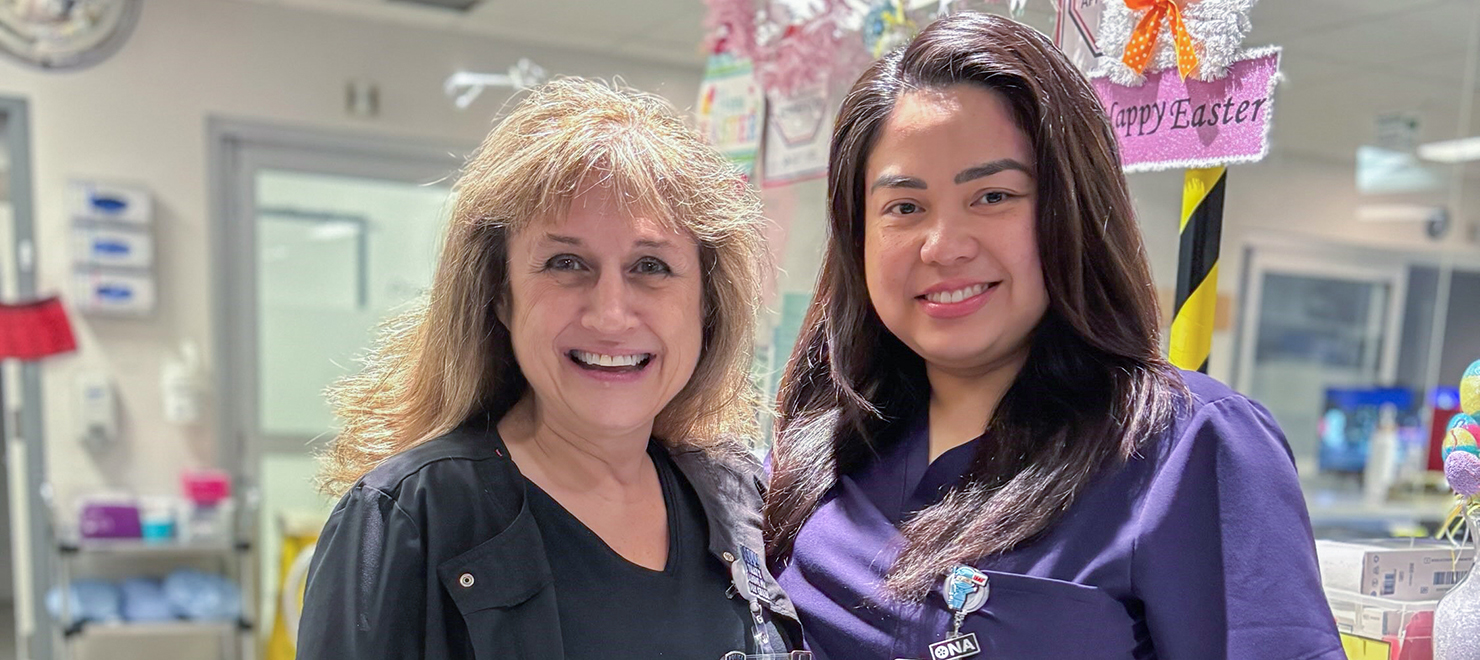
Would you know what to do if you saw someone experience a stroke, heart attack, opioid overdose or other medical emergency?
Quick action can save lives — and being prepared is half the battle. That’s why The Ottawa Hospital has launched a series of step-by-step YouTube videos that walk you through how to respond to common first aid emergencies.
Presented in both English and French by experts from across our hospital, these easy-to-follow videos cover the following conditions and life-saving techniques: psychosis, stroke, opioid overdose, Heimlich maneuver (abdominal thrusts), seizure, CPR (cardiopulmonary resuscitation), general poisoning, heart attack, minor bleeding, emergency bleeding control and choking.
If you search YouTube for any of these topics, you may see our videos pinned at the top of your search results, alongside first aid videos from other high-quality health-care organizations. The videos will appear on a shelf titled, First Aid from Health Sources — a new feature that YouTube has recently launched in Canada.
This new video series is our latest partnership with YouTube Health. Since early 2024, we’ve posted videos on an array of common medical conditions, including the common cold, HIV, infertility and meningitis.
The Ottawa Hospital is always focused on improving access to health resources. Partnering with YouTube Health is one way that we can deliver accessible, accurate and high-quality health information to viewers at scale.
Ready to prepare yourself for some common emergencies? Watch the full What to do in an emergency series on The Ottawa Hospital’s YouTube page. And be sure to subscribe to our channel for more helpful videos from our experts.

Support patient care and research at
The Ottawa Hospital
You might also like…
Flu season 101: A quick guide to keeping the sniffles away
Got two minutes? This short guide could help you make it through flu season without stocking up on tissues.
Aging well: Guidance for older adults
In this special video series for both older adults and their loved ones, geriatric care specialists from The Ottawa Hospital offer guidance on navigating common health-care challenges that may arise with aging.
How to stay safe around water this summer
Drowning can happen to anyone — even strong swimmers. Emergency physician Dr. Christian Vaillancourt debunks common myths about drowning, explains how to act quickly to save a life, and shares what you can do to keep yourself and your loved ones safe around water.
What’s the difference between an optician, optometrist, orthoptist and ophthalmologist?
“Do I need to see an optician, optometrist, orthoptist or ophthalmologist?” We asked Ophthalmologist Dr. Annick Fournier to break down each role so you will know who to consult for your specific eye care needs.
Novice nurses and their mentors learn and grow together
Discover how mentorships at The Ottawa Hospital facilitate a smoother transition into practice for novice nurses, allow experienced nurses to hone their leadership skills, and play a crucial role in retaining nurses from both generations.
Respirologist answers FAQs about cystic fibrosis
Cystic fibrosis (CF) is the most common genetic disease affecting children and young adults in Canada. Respirologist Dr. Shawn Aaron provides an overview of CF, including causes, symptoms, and the remarkable improvements made in life expectancy over the years.


 To reset, hold the Ctrl key, then press 0.
To reset, hold the Ctrl key, then press 0.






